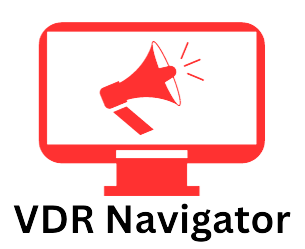The future of virtual data rooms is becoming increasingly important for companies looking for safe and effective data management solutions in an era when digital transformation is the norm. Virtual data rooms (VDRs) are becoming essential tools for secure document storage and cooperative information exchange as we negotiate the complexity of the digital realm. In this piece, we examine how virtual data rooms develop, explore their importance, and speculate on their potential in the digital age.

The Development of Online Data Rooms
Virtual data rooms have evolved significantly since its beginnings as a means of facilitating mergers and acquisitions. Previously utilized by experts in law and finance, these safe digital archives are now accessible to a wider range of sectors. VDRs serve as a collaborative platform for stakeholders located in multiple places by facilitating secure storage and regulated access to critical information.
Virtual Data Rooms: Present Situation
Virtual data rooms are the foundation of data security and business effectiveness in the digital environment. They provide a centralized platform for sharing, controlling, and keeping private papers. To maintain compliance with strict data protection rules and speed procedures, industries, including banking, healthcare, and legal services, primarily rely on VDRs.
Strengthened Security Protocols
A fundamental factor driving the future of virtual data rooms is their dedication to improved security protocols. As cyber threats increase, businesses are becoming more worried about protecting their sensitive data. Modern VDRs are increasingly equipped with advanced encryption methods, multi-factor authentication, and granular access restrictions as standard features, offering a haven for sensitive data.
Global Accessibility and Collaborative Workspaces
The collaboration functions of virtual data rooms are becoming increasingly important as remote work becomes the norm. These platforms allow teams to collaborate and move projects ahead regardless of physical location by enabling seamless cross-border cooperation. Future developments should improve these collaborative workplaces by adding interactive elements and real-time communication capabilities to facilitate collaboration.
Utilizing Up-and-Coming Technologies
Incorporating developing technologies is closely related to the future of virtual data rooms. In the future, features of data rooms, artificial intelligence (AI), and machine learning (ML) will be essential. AI-driven data analytics can offer insightful information on document usage trends, user behavior, and any security issues. By automating repetitive operations, machine learning algorithms can improve data management effectiveness and lower the possibility of human mistakes.
It’s important to acknowledge the continuing developments that influence these platforms as we examine the future landscape of virtual data rooms. A new era of efficiency and security is emerging from the convergence of technology and data management.
User Experience and Customization
With a rising focus on personalization, user experience is central to VDR development. Future virtual data rooms should include more specialized options, enabling companies to modify the platform to meet their requirements. Personalized dashboards, smooth navigation, and intuitive user interfaces will be essential elements that guarantee users can get the most out of these systems with little to no training.
Integrating Blockchain Technology for Exceptional Transparency
Blockchain technology is causing a stir in several sectors. Combined with virtual data rooms, it offers a viable way to guarantee previously unheard-of security and transparency. VDRs can improve data integrity by using the tamper-resistant and decentralized features of blockchain technology, which offers an unchangeable record of document history and access.
Prioritizing Compliance
Virtual data rooms must keep ahead of the compliance curve as data protection laws continue to change. Anticipated VDRs will probably include automatic compliance checks so businesses can easily comply with local, state, and federal standards. In addition to reducing risks, this proactive approach to compliance will raise virtual data rooms’ general level of credibility.
A convergence of variables, including technology improvements, user-centric design, and an unwavering commitment to security and compliance, will likely determine the future of virtual data rooms.
Virtual Data Rooms’ Ascent in Emerging Industries
Despite their historical associations with these fields, virtual data rooms are becoming increasingly popular in areas other than banking and law. Businesses in the industrial, healthcare, and even startup sectors are incorporating VDRs into their operations after realizing the benefits of safe document management. This range of applications demonstrates the flexibility and applicability of virtual data rooms in many commercial contexts.

Scalability and Cost Effectiveness
Upcoming virtual data rooms should provide affordable options for companies of all kinds. Scalability, which enables businesses to increase their usage as their demands develop, will be crucial. Cloud-based VDRs will become more well-known because of their adaptability, which removes the need for large hardware expenditures and offers on-demand scaling.
In summary: In conclusion, the future of virtual data rooms is exciting and promising, and it is ready to adapt to the changing demands of organizations in the digital age. Virtual data rooms (VDRs) are leading the way in creating a new paradigm for data management, from improved security measures and collaborative workplaces to integrating advanced technology. The significance of virtual data rooms will only grow as more sectors realize the possibilities of these platforms, fostering cooperation, efficiency, and security throughout the corporate landscape.
FAQs
To get the answers to your inquiries, consult our FAQs! Carefully select facts that will help you solve your difficulties quickly.
Q1: In the digital age, why is the future of virtual data rooms so important?
A1: Businesses are negotiating a challenging data management landscape in the digital age. The unsung heroes of the information security world are virtual data rooms (VDRs), which offer a safe sanctuary for sensitive data. Their importance comes from the fact that they are the designers of collaborative workplaces and the defenders of data integrity, making sure organizations prosper in this data-driven environment.
Q2: How are virtual data rooms changing to tackle upcoming security issues?
A2: Virtual data rooms are preparing for a cybersecurity clash, not merely adapting. Strong access restrictions, multi-factor authentication, and advanced encryption are the army’s armor in the never-ending battle against cyberattacks. Building a stronghold for your digital assets is more important than merely storing data.
Q3: Can virtual data rooms replace physical collaboration spaces in the future?
A3: Definitely. Virtual data rooms are replacing real collaborative spaces as remote work becomes more common. They’re building a digital playground where teams can work together, exchange ideas, and create new things regardless of where they are—they’re not just keeping papers. It’s similar to having a cloud-based workplace!
Q4: What role does AI play in the story of virtual data rooms in the future?
A4: Imagine AI as the magician in the background. Virtual data rooms utilize artificial intelligence to identify possible security threats, interpret user behavior, and automate tedious activities that plague your workday. It’s data magic, not simply data management.
Q5: Will virtual data rooms be user-friendly for businesses of all sizes in the future?
A5: Imagine having a virtual data room that is as customized and user-friendly as your preferred program. These platforms won’t serve large enterprises alone in the future. They will be like chameleons, changing to fit the specific requirements of both businesses and startups. It suits you precisely; there is no one-size-fits-all approach.
Q6: How is the virtual data room industry evolving due to blockchain technology?
A6: Envision an angel of protection watching over your paperwork. The virtual data room’s guardian angel is blockchain technology. It works like a door bouncer, allowing only authorized individuals to enter by introducing decentralization and an unchangeable record of document history. Data incorruptibility is equally as important as data security.
Q7: Can smaller organizations also gain from virtual data rooms, or are they just for large industries?
A7: Virtual data rooms were formerly major players’ covert weaponry. Not any longer. These platforms are eroding the prejudices associated with the sector in the future. Virtual data rooms are the adaptable companion that every company needs, regardless of size—from startup mavericks to healthcare giants. It applies to all leagues, not just the major ones.
Q8: How can virtual data rooms maintain their competitive competitive edge in compliance?
A8: Virtual data rooms have a special invitation, and compliance is the VIP party. Not only will future VDRs adhere to compliance requirements, but they will also smoothly follow the regulatory melody. It’s not only about obeying the regulations; with automated inspections and a proactive strategy, you can also set the trends for compliance.

